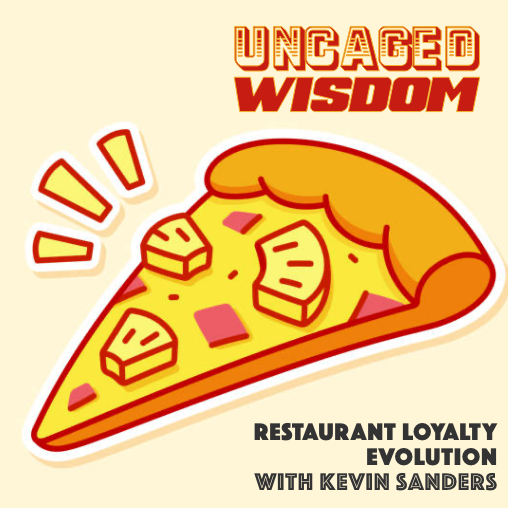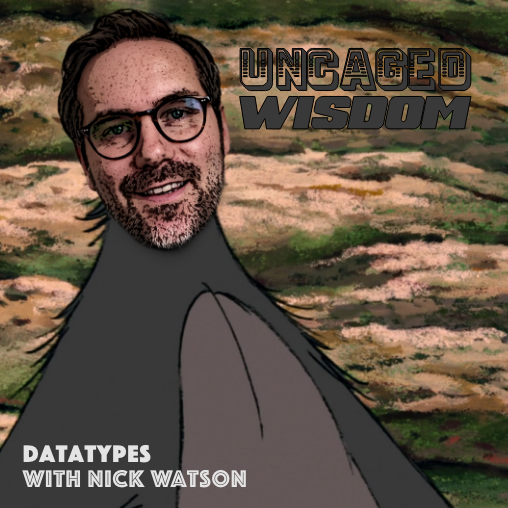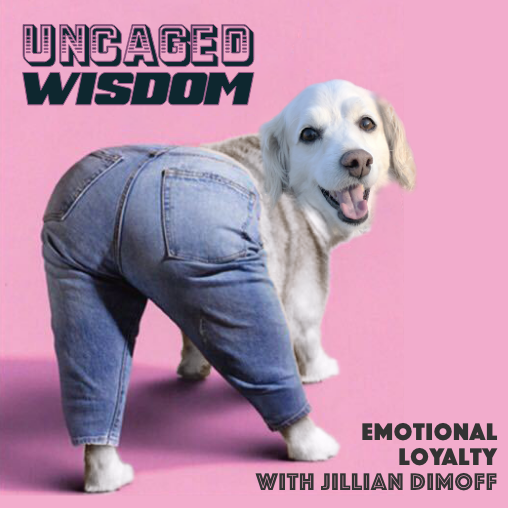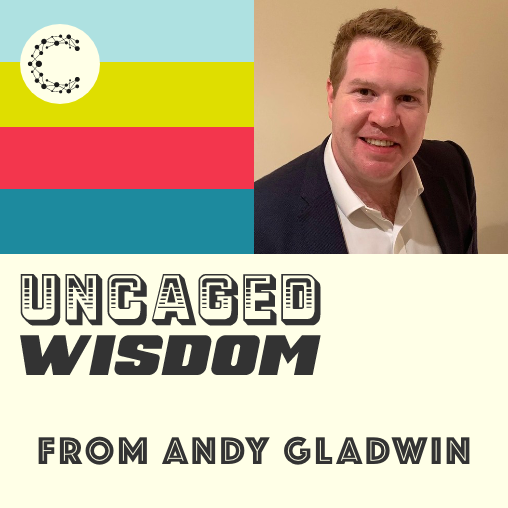Second Half - Sports Teams and Associations During Covid-19 and Beyond w/ Hari Sethi
- 0.5
- 1
- 1.25
- 1.5
- 1.75
- 2
Julian: Halftime oranges, a cup of tea. We've had our manager yell at us, or coach, and when trotting out for the second half. How are clubs going to start thinking about the medium to long- term, to help support the re- emergence of sport, both being watched and play, getting over the post- traumatic stress of this?
Hair Sethi: Yeah. I could just do my politicians answer and say, well, no one really knows. That'd probably be a response that you hear from quite a few people in the industry. It is a response that I've heard from quite a few people in the industry as well.
Julian: Fortunately, I've got my best frost hat on today, because of my hair. I'm not going to take any politician's dodge.
Hair Sethi: It is part of a guessing game at the moment. No one really knows how things are going to emerge after this. I think, in terms of getting fans back into stadiums, I think that the majority of clubs I've spoken to, the focus is probably on getting the live matches back, obviously, that's first and foremost. Whether or not it's behind closed doors, initially and fans still, their only access to the game is through watching that, or having it streamed online. Maybe the broadcast rights for sports will continue to change. Whether or not clubs who, many, many different clubs and many governing bodies are launching their own OTT platforms. They're trying to go direct to consumer with players that are being heavily used right now to replay archive content just on my phone. As we're speaking, a popup came up from a very big sporting governing body that was giving me the option to watch a classic international match if I wanted to. They're already doing that at the moment. Whether or not there'll be any lingering residue of that once the live match actually comes back, or whether people will be reassessing, whether or not they do go increasingly direct to consumer, to the streaming of games, direct to audiences. I think that will be definitely a point. That's something that's not going away. It wasn't going away anyway, but I think the conversations on it have been accelerated by this situation that we find ourselves in at the moment, really, where these platforms that were, they were doing okay, but maybe not generating some of the viewing figures they hoped for in this period. Of course, people have flocked to them during the vacuum of live sport. I think it's probably only given them more ideas about how they could be increasingly involved in the streaming of actual live action week in, week out.
Julian: There is an acceptance of almost taking things for granted when it comes to numbers of impressions that clubs will get on their sites. The fact is, they don't have to worry about driving people to their web destinations, because they know that you're not going to just go to another shop, or another brand. Loyalty to a sports team is completely different to even what we preach emotional loyalty to a retail brand, for example. They don't really know who these fans are, if I'm honest. I always find that quite shocking. Is there a value? Should clubs be thinking, how to gather more information and starting to build profiles or awareness of a rounded person and not just a fan?
Hair Sethi: 100%. Yes. During this period, the clubs that are data rich had been in quite a good position, because they can look at those fans profiles, which they're gradually padding out through both using the experiences platform and other communication methods as well, via email as well. Those padded out profiles that they've started to build on fans, that's enabled them to create these custom audiences, segment their audience a lot better, so that they know which parts of their fan base enjoy which type of content. Then actually serve those fans content that's far more relevant to them during this period. The clubs and the organizations that are data rich, they're benefiting from that right now. It's only showing clubs that aren't, perhaps, the importance of doing that going forward. I think what we mentioned right at the start, around how sports has shifted and how many more different interactions, or interaction points, there are now for fans with their clubs, across all manner of channels now. That presents an opportunity, because there's a data trail there. We know very well, you should be engaging fans on your own platforms and you should be engaging them across social. Those are two very different audiences. The demographics there are different as well. Certainly, I'd say there're huge benefits in clubs using the proliferation of these social platforms and using those opportunities to capture data off those fans. Not in a way purely just to sell to them, obviously that is a focal point, but to better tailor the content that they actually are serving them, because in situations like this, even though you can't really plan for it, the clubs that have been doing that anyway, they're much better placed to be adaptable in this situation. That's what we've seen. You can still collect content during this period. In fact, if you're trying to catch up, I'd say it's a great opportunity to launch data capture activations at this point, just so you can start to understand who these fans are and what they're engaging with, more than other types of content.
Julian: I'm going to put my cheetah hat on and be a bit selfish in this. My leopard skin, pillbox hat, if Bob was here.
Speaker 3: You must tell me baby, how your head feels under something like that, under your brand new leopard skin, pillbox hat.
Hair Sethi: Our customer engagement suite. Our engagement data platform, which is at the center of that, a place where we can collect lots of information and then just information that's already collected from other areas of the business, to help build, what is a marketing profile and a marketing database for people to action on. There are very few organizations in the world that could quickly build a profile on Judy embracing Davis, which he's happily given, better than a sports team. If you're the mega fan that they've got, it's making sure that you are following their life. A More casual fan. Maybe I've been identified because I said it in a filling out one of the quiz questions when I was on voting for my all time favorite player. I go to a match maybe once a season. Wouldn't that be a great way if you could entice them back for a second match? Especially if that second matches during one of the games, certainly in the MLB, for example, where the attendance is a little bit dipped towards the middle of the season. The need to have, and to take seriously, in this time where there's a bit of time to take stock, to think about a data strategy, wherever it lives, and to have that data actionable, is surely the way that all clubs, big and small, can make a difference and future proof themselves, which is a word or a buzz word I really don't like, but I just used it, so I'll give myself a yellow card.
Speaker 4: Send him off. Send the dirty git off. Get him off the field. That was diabolical. Get him off the field. It's going to be a yellow card.
Hair Sethi: I think as well as people being anxious and eager to present fans with as much as possible, I think that it's also a really good time for sports clubs and for governing bodies and leagues to take the opportunity to reflect on the way in which they've done things. When it comes to data strategy, I think what's quite useful to use this time to do, is to think about, we're always speaking with clubs and leagues about what data points actually are the most valuable for them. As you mentioned there, there's a whole variety of data points around a fan's life and key moments in their life, that are very important to be aware of. It's about maybe taking this time to think about what constitutes a golden record. You've got a set of data on a fan anyway, the chances are, you want to pad that out with more preferential data. Obviously, we're big on zero- party data and talk about that a lot. As you mentioned, sports are very lucky because there are so many different opportunities to engage with the same fans throughout the majority of the season. Things like functionality, like progressive profiling, to gradually ask different preference based questions, maybe each month or things like that, those are the sort of strategies that we were seeing from clubs. Audience segmentation, knowing which audiences are perhaps best to serve to specific partners for partner content-
Julian: Absolutely. Brilliant point.
Hair Sethi: ...is very valuable. Especially with travel, that was mentioned now, thinking on the number of travel partners that are involved with sports as well, knowing how best to re- target those fans when it does become a possibility for them to get out and about, again. Your having an audience that you know engages readily with that content and that brand, very, very effective at this stage. You can use this opportunity, I'd say, to think about what those data points are, whether there's 10 or 12 of them that are your golden data points that make up that golden record. What does that look like for each individual sporting brand or sporting club? Then use this period as a pre season, an off season. Quite a few of the experiences that we launch with clubs and with brands, brands don't always have the off season luxury to use it as a test kitchen, but your sports clubs, we used to frequently have brainstorming sessions on, what are the 10 experiences that are high volume experiences that perhaps we want to run throughout the season regularly. Let's test them out in preseason, to see how effective they are and then the best ones, the best performing versions of them, those are the ones that are then selected and rolled out across the duration of the season. You can take learnings from that as well. I think clubs should look at this period and try and use it as that test kitchen environment, to find out what data they really need from fans and try and work on segmentation of their fan bases as well. Throughout this, they'll be able to see what content is resonating best with fans, and they should take those insights and enroll them into their future strategy.
Julian: So many good points there Haz. Obviously, the golden record you're talking about is very different to Golden Balls, which is Beck's.
Hair Sethi: Yes, of course.
Julian: And Golden Goal. Do you remember? Euro 96. That was the fated experiment for Golden Goal.
Hair Sethi: I do remember it. Yes. Yeah.
Julian: For those who aren't sure, basically in extra time in the European championship, and this is when it was hosted in England and football was apparently going to come home, didn't quite make it home. It forgot. It was like Home Alone, half the family made it, but they left the trophy in Germany. The Golden Goal was if you scored, obviously, in that extra time, you instantly won. Next goal wins, which is something we love at school, kicking around, jumpers for goal posts. It'll just be an attack fest, chances and chances. What happened is, the teams were like," Well, we don't want to crosstalk because we're out." It was like, I don't know if you've ever seen it, Kayla, with that Simpsons episode where they introduced the World Cup of soccer, it comes to Springfield. Basically, it passes it back and forth, back and forth.
Speaker 5: The Continental Soccer Association is coming to Springfield. It's all here. Fast kicking, low scoring and ties. You bet.
Speaker 6: Half back passes to the center, back to the wing, back to the center. Center holds it, holds it, holds it. Half back passes through center, back to wing, back to center. Center holds it. Holds it. Holds it.
Speaker 7: Of the things that we keep talking about is the fan base, but what about the opportunities for some of these smaller clubs and teams to come through and build a fan base? So, acquiring new fans, whether that's a fans of, maybe it's the regional baseball team that likes the national version of the MLB. What are ways that these smaller clubs and teams can start thinking about how to acquire those fans?
Hair Sethi: Yeah. I think it's, obviously acquisition of new record, acquisition of new fans, is just as important for some clubs, especially those who are smaller, as you mentioned. It comes down to two things. We talk about it a lot really, but in this period it's even more important. There's always a focus around value exchange and what you're able to actually offer other people to entice them, to engage with you. If you're trying to entice new fans, it's all going to depend on the quality of content that you're putting out during this period. There are initiatives here that we've already spoken about, that actually reach beyond sports, really. If you're thinking around some of these community- based experiences that can be launched, those are ways in which you can engage with audiences that perhaps wouldn't have immediately engaged with you beforehand. But because it's now focused around communities instead, they're more willing to provide some data, to give a nomination, to give that example that we mentioned earlier on around local heroes, those types of pieces of content, the focus more around initiatives that can keep people healthy and keep people positive during this period. I think that's quite a good opportunity to seize on that content as a way of enticing new fans to engage with the club. Then also as well, it's the way in which you promote those new focal points, as well. So those new live streams of games and those new player challenges that people are putting out across social. Those players actually very often, they're brand ambassadors across the board as well, but they have their own fan bases, those players. Surprisingly enough, not everybody who follows their every move across social, clubs will be aware of them, for example. I think leaning more on players to produce content that's attached to clubs, and then your data catcher experiences off the back of it. It actually opens you up to a new audience of fans that we perhaps wouldn't have been in a clubs database beforehand, who can then be targeted in the future as well. I'd say player access and the audiences that players have at their disposal, very important, even if you are a smaller club, now is a very good opportunity, I'd say, to do experiences and put out more content where you're trying to build awareness of those players personalities. One of the challenges that we see, even with your bigger clubs, in promoting women's football, and that we're working on very heavily at the moment is, experiences that are all around building the relationship between fans and these athletes who may not be that well known. So not David Beckham, not those kind of athletes who the world knows their personality over, doing experiences that convey their personality. It's a similar challenge. You'll be putting content out there to really story tell and get fans in that way, effectively.
Julian: The MLS is unique perspective of creating franchises. All of what you've just said then is a perfect way for those, and they're the perfect test beds, of how to create a club from scratch and generate all of the fan base interest and database on who they are, because there's nothing there before. We worked on a few MLS new teams in the last five years.
Hair Sethi: Yeah.
Julian: Absolutely fascinating to watch both how we're involved, actually, just from a side as a strategic partner. Those lessons though, to your point, Kayla, they can all be applied to a medium to small club, or to someone who's based, just taking a fresh look at how they're doing things. It's easier for the brand new franchise to start from nowhere because anything's a gain. They come up with all this stuff and all these strategies, and they can actually start building a brand new, shiny world of fans. But for the smaller to medium clubs, those same things, they're almost in a better place because they've got all of the things that we started at the outset of this call. They've got history, they've got content and they've got an already embedded fan base. How can you actually just take that to the next level?
Speaker 8: You're very passionate about sports and marketing in general with experiences. It'd be interesting to hear, what is your soapbox? What's that passionate subject that you just have to kind of step up and talk about?
Hair Sethi: I think a lot of the things that we've talked about today, that clubs put out across all sports, not just soccer, it could be any sporting league, they're designed to make fans feel like there's less of a proximity, or the proximity between them and their club is limited. Somebody in Singapore could feel close to a club in Canada, or wherever in the US or the UK, by the content that they engage with, that's put out online. My soapbox is usually around people who are actually going to games and things like that. It's usually on ticketing prices, to be honest, that's where I get angry. That's why I tend to say too much. I think, we've spoken a lot around community, the focus on community and clubs are doing some really great work here, but I think one thing that could come out of this whole situation is, clubs across the board, in whatever sport where we're talking about, taking a look again at just how accessible their sports have been for the fans that live within their local community. They're now relying upon, obviously, and amplifying. For me, obviously talking about the premier league here, I would like to see updates there and maybe reflection on how they could make the game more accessible for younger fans, because there's never not a reason to get a wider audience into a sport. You can learn a lot more around just exactly who actually is engaging with your club, with your brand, by making it more affordable. I'd say, that's usually my soap box.
Julian: I like that.
Hair Sethi: That, and probably something to do with VAR. I'm not going to bring that up.
Julian: You're just a well- rounded young man, may I say. What a tremendous job your parents did with you. But Perry, other than being a sports aficionados, you're also a man with a key music ear. I would just like to know if there's anything you would share with myself and Kayla and the wider audience of what we should be listening to?
Hair Sethi: At the moment, today, listening to The Strokes new album. Yeah, they're still around. It feels like a return to form. Actually, even the album name is appropriate for the times we live in as well. The New Abnormal, it's called, as well. I'd definitely get people to go on that. There's a band that I love called Little Dragon, and they released their new album, New me, Same Us, and they're great. They're like dance, electronic, but pretty lighthearted. If it's sunny where you are as well, they're quite a good group to listen to.
DESCRIPTION
In the second half Hari focuses his attention to the medium and long term, looking at how clubs and associations can help support the reemergence of sport post Covid-19. One of the key lessons to take is the importance of having a centralized data strategy. How can sports teams and associations build something out here?







